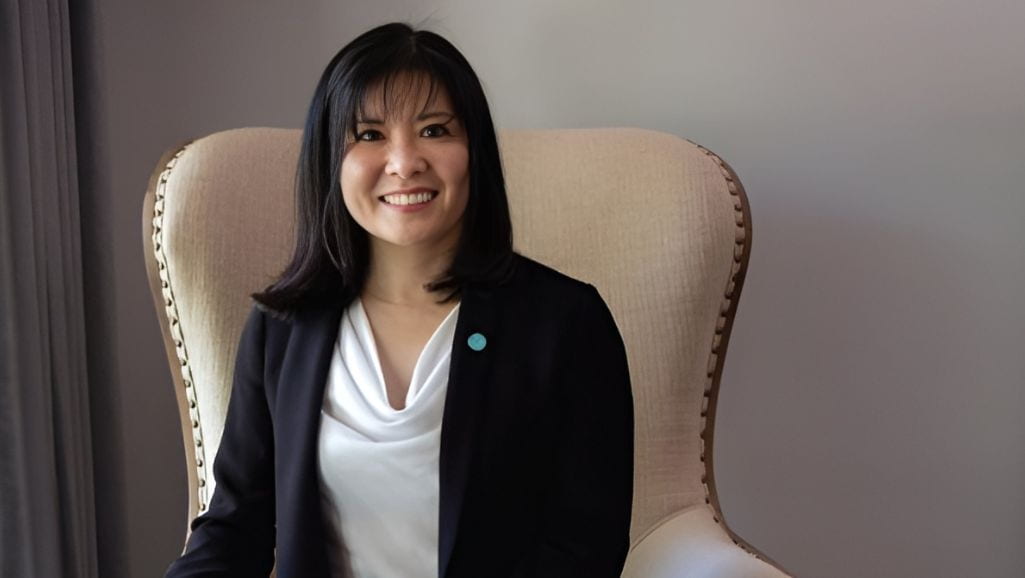Congratulations to Cassandra Ma, Psy.D, on receiving a Joyce Chapman Community Grant for the project “Maximizing retention in therapeutic services in survivors of child and youth sex trafficking”! In partnership with Reclaim13, Ma will outline a program of research focused on improving outcomes for survivors of child and youth sex trafficking. Read more about C3EN’s Joyce Chapman Community Grant projects and apply for a grant HERE.
Dr. Ma is the Founder and Executive Director of Reclaim13, a non-profit organization dedicated to providing healing services to survivors of sexual abuse, trafficking, and exploitation. Dr. Ma received her doctorate in clinical psychology at the Chicago School of Professional Psychology and completed a post-doctoral fellowship in marriage and family therapy at the Family Institute at Northwestern University, where she joined the staff team teaching and coordinating the Bette D. Harris Family and Child Clinic.
Reclaim13 began in 2012. Dr. Ma and Reclaim13 have been recognized by the Office of the U.S. Attorneys for the Northern District of Illinois for their work with victims of child sex trafficking. She has been recognized by the Illinois Department of Children & Family Services for her compassion, dedication and commitment to the children and families of Illinois and has served on various advisory boards, including the Illinois Children’s Justice Task Force and the College of DuPage’s Human Services. Dr. Ma has been featured on ABC’s “Our America: Women Forward” and “Asian Influences.” She presents frequently about child trafficking and child victimization and contributed the chapter on “Developmental Aspects of Child Trafficking” in the book, Psychological Perspectives on Human Trafficking, published by the American Psychological Association. In 2023, Dr. Ma was recognized as Woman of the Year by the Rotary Club of Chicago.
Can you tell me more about your organization?
Reclaim13 works with survivors of child sexual abuse, exploitation, and trafficking. Children from impoverished communities, racial minority groups, and historically marginalized groups are overrepresented amongst those who are then abused. Bringing equity is an important part of our work, to facilitate optimal healing for those who ordinarily cannot access the best care.
At Reclaim13, we operate a safe house for children who have been trafficked between the ages of 10 and 17, the only home in the whole state of Illinois that serves minors. We have a holistic healing program with individual therapy, and we have a partnership with the hospital that provides pediatric care. They learn life skills, they are educated within the home–they basically learn all the things that they need to be able to heal and become happy, healthy kids. We also have a residential program for young adults 18 to 25, which helps them take their next step into their adulthood and be successful and free from revictimization, which is really common with survivors who have been victimized as kids. We also have a program that serves moms who are survivors and a partnership with Lurie [Children’s Hospital] that provides services to really little ones who are newly identified as child sexual victims in the emergency room–they often get brought in for other things when they get identified. We also work closely with law enforcement and the Department of Children and Family Services.
How does your C3EN project fit into your organization’s work?
One of the biggest issues that we have is that it’s very hard to engage victims in services because there’s what we call a trauma bond with their perpetrators–they often opt to return back to perpetrators rather than to their families, which they run away from usually because of abuse in the household.
Our C3EN community grant project, “Maximizing retention in therapeutic services in survivors of child and youth sex trafficking,” will begin to examine what can be done to engage survivors in much needed healing services and care so they can build resilience and the cycle of re-victimization can end in their lives. Once a child is victimized the likelihood of re-victimization is high. Our programs aim to intervene at every point along the cycle of sexual exploitation, including ending that which becomes an intergenerational pattern if not ended. Ultimately, once survivors are engaged in healing programs our goal (and broader research interests) is to determine the factors that need to be addressed to end the cycle of sexual exploitation in every survivor victimized first as a child.
The idea behind this project is to convene professionals in this area to figure out how we can do a better job if we only have these kids for a very short time–how can we break that trauma bond that they have with the perpetrators to help them see that there’s a different way that their lives can go, engage them in services, and help them move away from these unhealthy, dangerous, and traumatic situations?
I am not a researcher. I went to school to be a clinician. But it is very important to see what we can do to get these kids safely out of these unhealthy relationships. If it takes research to do that, then I want to see what we can do.
How did you get into this field?
My background is in clinical psychology. I used to work at the Family Institute at Northwestern, and I used to teach and supervise graduate students who are training to be therapists. I had worked a lot previously with kids who had been through the state child protective services systems in New Jersey. My desire as a family therapist was to help kids to grow up in healthier families.
I heard about kids who were being trafficked in our city, and the statistic was that when they run away from home, they can expect to be approached by a perpetrator within 48 to 72 hours. That gives us a 47-hour window to find them, so I would take my car and go into the city and different neighborhoods or streets–wherever I was told these kids run to–and try to find them. That was not really a good plan… actually it’s illegal to put a kid in your car! So I started the nonprofit that is now Reclaim13 as a volunteer organization, and now we have over 35 employees and probably over 200 volunteers. It’s an amazing opportunity to do something and be on the side of good for something that is an evil that does exist in our world.
Could you give a sense of the scale of the problem?
Over 95% of the kids that we work with were trafficked at age 13 or younger, which is why we are called Reclaim13. Almost 99% of our kids have histories of sexual abuse prior to being trafficked. No child should have to endure the first incident, but absolutely not the subsequent revictimization that occurs.
How can people get involved or help?
On our website we have ways that people can volunteer. And we have an art show, the 6th Annual Reclaiming Voices Survivor Art Show on Sunday, April 21 from 10am to 4pm at Morton Arboretum–you can get in for free and walk the grounds and also see the different forms of creative expression that survivors of sexual abuse and exploitation have created to share with the world.


